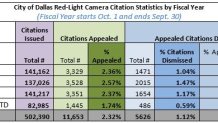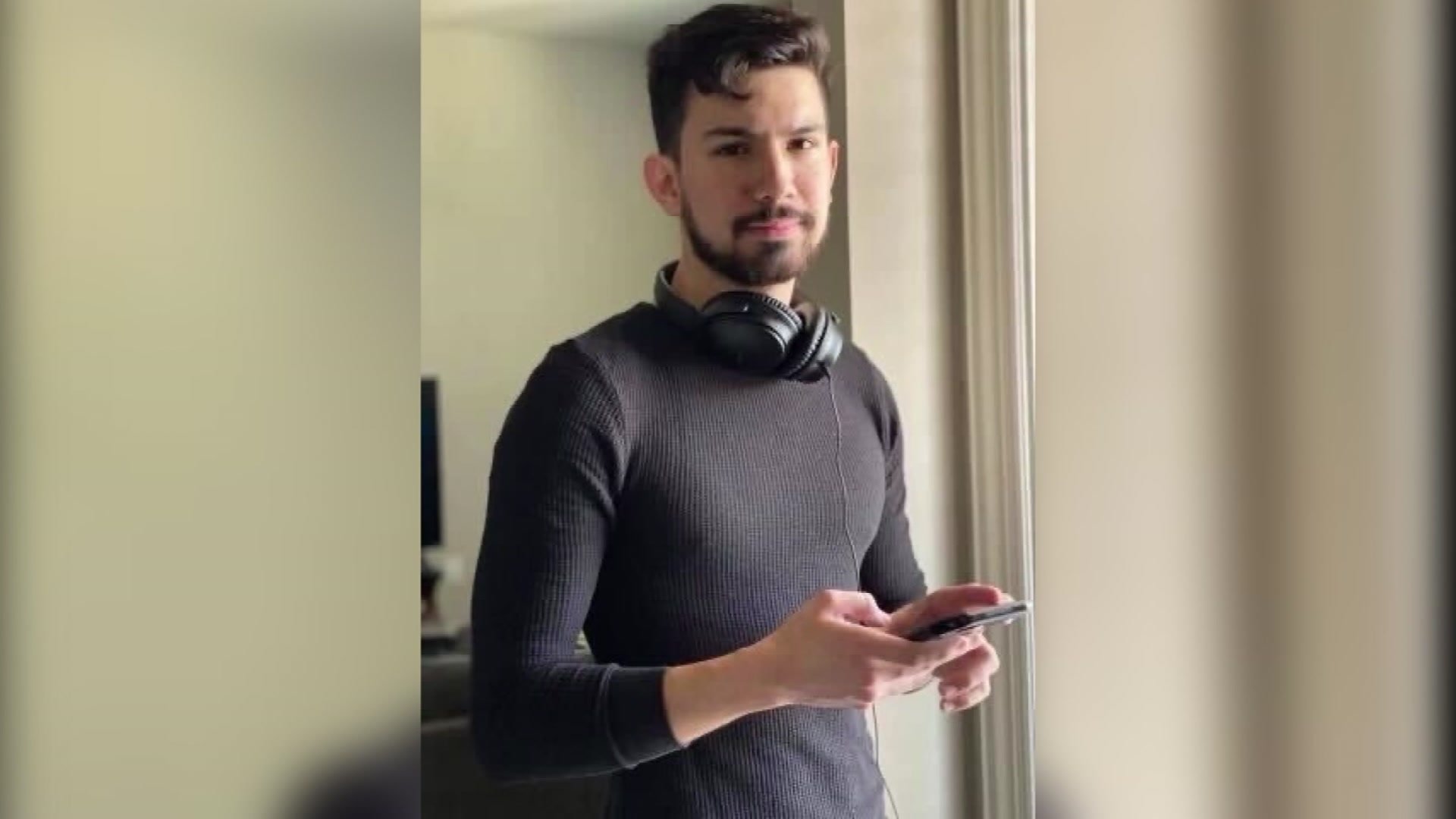Is it time to kill the red-light cameras in Dallas? One Dallas city council member says it is.
A city council committee a few weeks ago debated extending the SafeLight red-light camera program. Ultimately, the vendor contract was extended another year.
Some questioned if "red-light photo enforcement" is really an effective public safety tool.
Police, and many elected officials, say yes. But NBC 5 News has learned hundreds of tickets every month are dismissed. In fact, about half of all SafeLight tickets end up getting tossed upon an appeal hearing.
Jack Wallace was angry and frustrated when he showed up to Dallas' administrative court Wednesday morning.
He took time off from his Garland job to appeal his red-light ticket from two months ago. He says he couldn't safely stop at the yellow light at Buckner Boulevard and Garland Road.
"It makes you feel angry. It makes you out of your mind, is what it does," Wallace said.
Local
The latest news from around North Texas.
Like many drivers, he feels that he was "trapped" into a ticket by a too-quick yellow light.
He had his meeting with one of Dallas' five hearing officers, but lost. He thinks the SafeLight camera system is unfair.
"It's just frustrating that you don't get the information you need as a driver to go through those yellow lights. If they have those signs warning you that you're coming up to a [camera-monitored] intersection, they should also tell you how many seconds do you get on the yellow," he said.
But numbers uncovered by NBC 5 News show a significant number of drivers do win their fight.
Since the beginning of fiscal year 2012, the city's review officers have heard nearly 12,000 appeals from drivers trying to avoid a $75 fine.
Forty-eight percent of them – nearly half – were dismissed if there was an administrative hearing.
Dallas Red-Light Camera Citations (Fiscal Year starts Oct. 1 and ends Sept. 30)
- Fiscal Year 2012-2013 appeal hearings
3329 Red-light camera citations
1471 Cases dismissed (44 percent) - Fiscal Year 2013-2014 appeal hearings
3528 Red-light camera citations
2015 Cases (57 percent) - Fiscal Year 2014-2015 appeal hearings
3351 Red-light camera citations
1654 Cases dismissed (49 percent) - Fiscal Year 2015-May 15, 2016 appeal hearings
1445 Red-light camera citations
486 Cases dismissed (34 percent)
City Councilman Philip Kingston says it's time to end the program altogether.
"I'd love to explore simply canceling the contract and taking whatever hit we have to take," he said.
Kingston added that he supports having a referendum on the cameras in a city-wide vote, to see if citizens think the program is a worthwhile public safety venture.
"It's a racket. This thing depends on a fundamental fallacy," he said. "Most drivers are not intentionally running red lights. They're not trying to break the law and drive out recklessly into traffic when the light changes. Must of this stuff is due to simple inattention. So getting a ticket in a red-light camera has a zero-percent chance of affecting driver behavior."
Thelma Jones is one of the city's five hearing officers.
She showed NBC 5 a few videos from recent red-light infractions – drivers who could, and should, have stopped.
"A yellow light is telling you, prompting you, that you need to be preparing to stop now," she said. "For too many drivers, yellow lights don't mean 'lets slow down' anymore. When you look at the videos, yellow light means a green to them."
So why have nearly 6,000 red-light tickets been dismissed?
The biggest reason, Jones says, is a car's ownership recently changed hands but the paperwork is incomplete.
The cameras don't prove who is behind the wheel at the time.
"That's why the dismissal rate is sort of high. You have so many people who sell the cars and they don't have the information that they need," Jones said.
"So many times, when they sell the cars they don't do the whole process of everything they need to do," she said, noting that, in particular, many drivers fail to fill out the Vehicle Transfer Form and send it in to the Texas Department of Transportation.
"Is it a shame that the city is losing out on hundreds of thousands of dollars in lost revenue, because the cameras can't catch who is behind the wheel and the ticket goes the car's old owner?" asked NBC 5's Jeff Smith.
"I think we're protecting the person that sold it," Jones replied. "What would be a shame to me is if we were holding someone responsible for the ticket even though they didn’t own the car."

Councilman Kingston says it's time to end the program altogether.
Kingston said the cameras don't make better drivers, and they increase the risk for someone slamming on the brakes at a yellow light.
"It doesn't matter how much data I put in front of people's faces, they believe in the power of the red-light camera to somehow change human behavior," he said.
But some folks who fought and lost their red-light ticket appeals at the Oak Cliff administrative building say they are, in fact, driving more cautiously as a result.
"I'll be more careful to observe the red-lights. What am I going to do? I broke this one," said Dallas driver Keith Romain.
"It was very close, very close. I was past the line by, like, two-tenths of a second. Sometimes people make mistakes. And we all need to be safer drivers, I think," Romain said.
Drivers may ask for camera inspection records and to have whoever reviewed and approved the ticket appear at the appeal hearing, but that's rare.
"That happens so rarely. I would say not even one percent. Usually we have a clear video of what happened. And it's clear they ran the light," Jones said.
She added that people think often try to use the defense that they were being followed too closely or the roads were too wet to safely stop. More than a quarter of the citations, she said, are for rolling right turns at a red light.
"That doesn't mean the citation will be dismissed," she said. "We want to educate people to be safer, defensive drivers."
The Dallas Police Department last month said that where a camera is present, there's about a 65-percent reduction in crashes caused by "red light running."
Kingston said that neither the police nor SafeLight vendors have provided statistics on rear-end collisions. He accepts that T-bone crashes may have gone down, but other types of crashes likely spiked.
But with nearly half of all tickets getting dismissed, Kingston says the entire system needs to be shelved.
"We're harassing our citizens for no reason," he said.
Dallas Police Report to City Council Public Safety Committee



